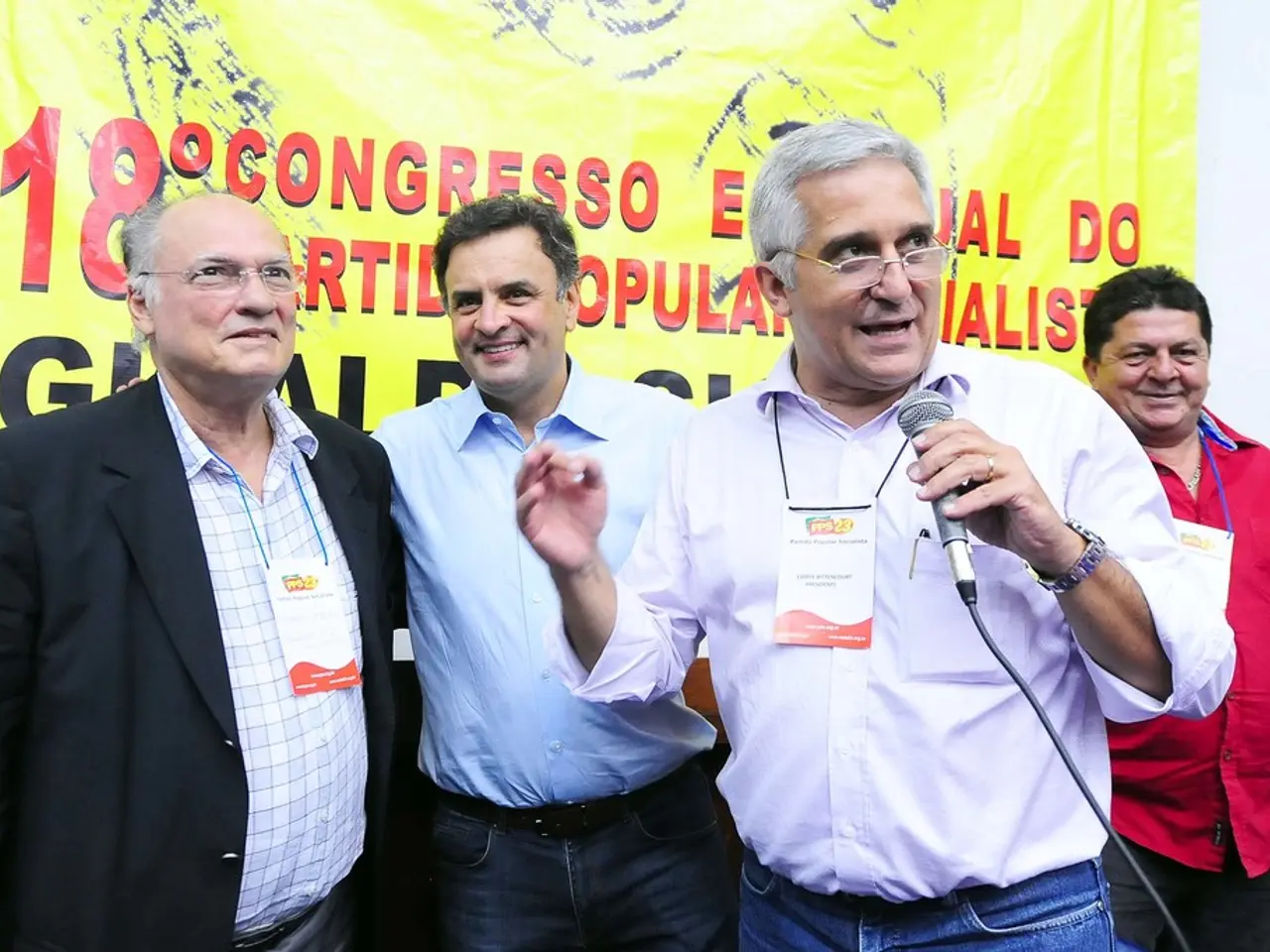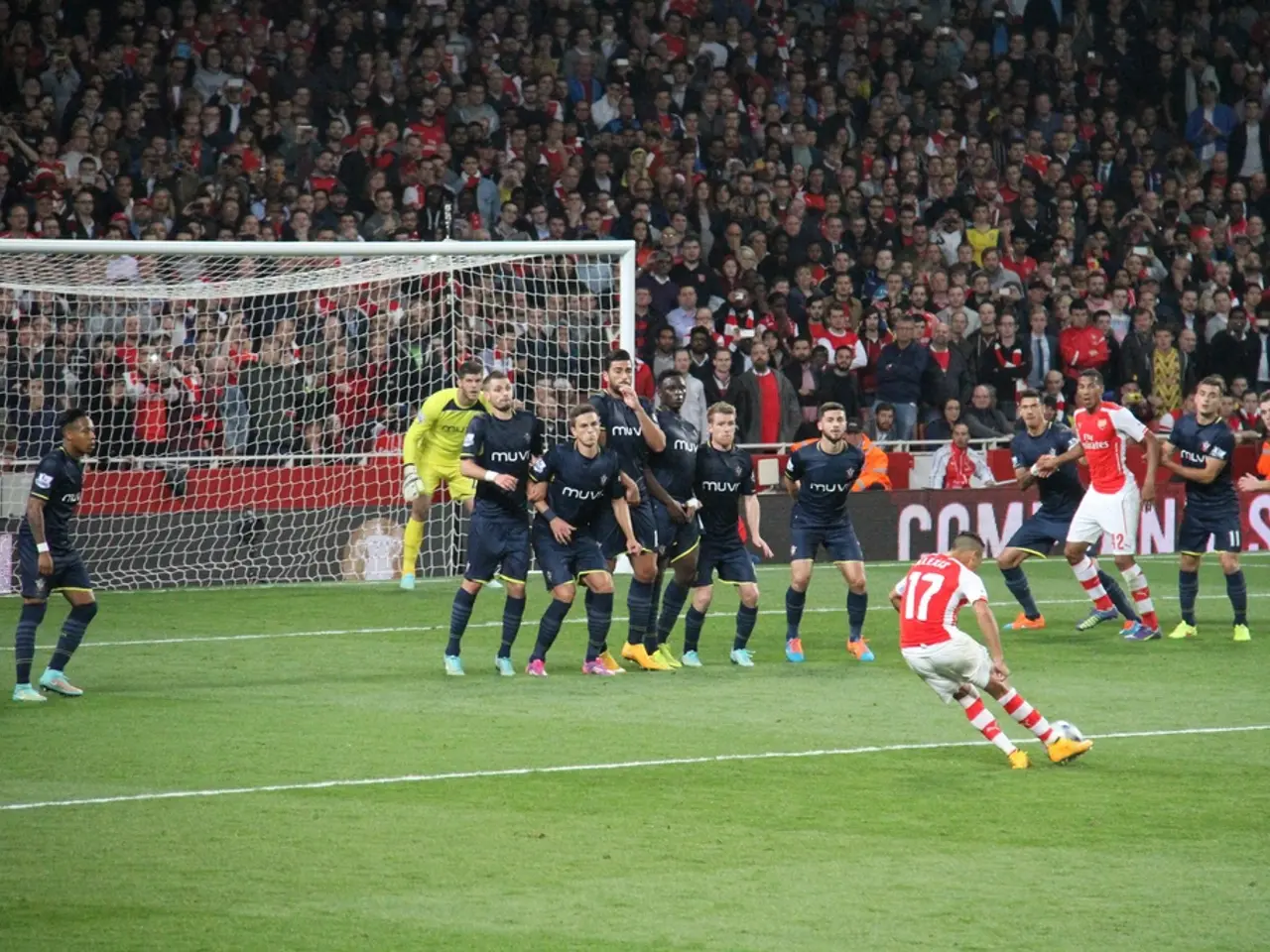Thousands Protest in Dusseldorf on May 1st, Demanding Equitable Wages and Socially Conscious Energy Shift
In the bustling city of Düsseldorf, trade unions are making women's concerns a top priority. With unions like IG Metall, ver.di, and DGB leading the charge, the city saw over a thousand demonstrators marching on May Day, sending a clear message: Without labor, nothing works.
Each participant carried their own message, from promoting fair wages to demanding a fair transition towards a greener future. As Dr. Stephan Keller, the city's mayor, acknowledged, the hospitality industry has learned the hard way that paying good wages is essential to find good employees. However, achieving this goal requires collaboration and adherence to collective bargaining agreements, a stance that not all businesses agree with.
The importance of collective bargaining was emphasized by Sigrid Wolf, chairwoman of the Düsseldorf DGB. She expressed concerns over companies leaving collective bargaining agreements to cut costs, which can lead to instability in wages, work conditions, and the overall social climate. In light of this, unions are focusing on securing wages, ensuring good work environments, and driving a social and fair energy transition.
Wages for women continue to lag behind those of men for the same work, a disparity that is of great concern to the unions. To address this issue, trade unions are calling on the German government to develop an action plan to increase the coverage of collective bargaining agreements to at least 80%. This, they believe, is crucial for a fair and sustainable transformation, as it ensures consistent investment in employee qualification, fair working conditions, and good wages—all of which are key to a successful energy transition.
Gabriele Schmidt, the ver.di regional leader in North Rhine-Westphalia, highlighted the importance of collective bargaining in securing significant wage increases to counter inflation and rising energy costs. She also expressed her support for railway workers while still in wage negotiations.
In addition to trade union activities, the day was filled with family-friendly events, discussions, and various stands on the square. Activists from groups like Fridays for Future and Extinction Rebellion shared their advocacy efforts, demanding a moratorium on evictions of villages like Lützerath at the edge of an open-cast mine.
As communities around the world grapple with rapidly changing crises, it's crucial to come together, support each other, and demand fair treatment for all workers. The demonstration in Düsseldorf on May Day was a powerful reminder of the power of collective action and the importance of standing up for what's right.
Unions, such as DGB and ver.di, are advocating for an increased coverage of collective bargaining agreements in the German government's action plan, with a goal of reaching at least 80%, to ensure fair wages, particularly for women, across various sectors, including politics and general-news. Dr. Stephan Keller, the city's mayor, supports this initiative, acknowledging the necessity of good wages for the success of the energy transition and maintaining a positive social climate.






